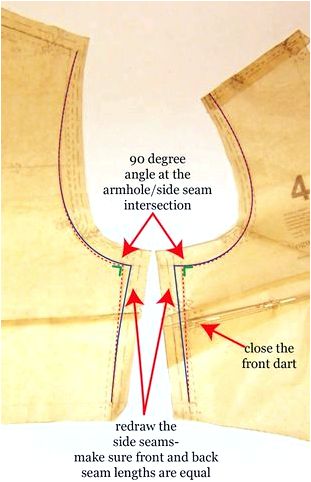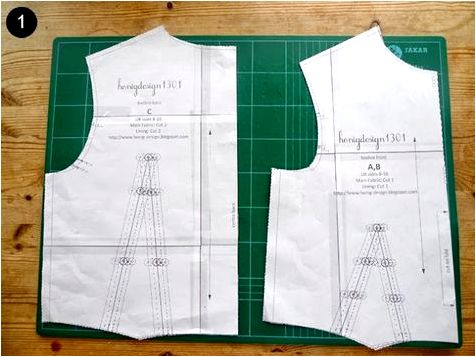These keywords were added by machine and never through the authors. This method is experimental and also the keywords might be updated because the learning formula improves.
This can be a preview of subscription content, sign in to check on access.
References
M. Acceta, R. Baron, W. Bolosky, D. Golub, R. Rashid, A. Tevanian, and M. Youthful, Mach: A Brand New Kernel Foundation for UNIX Developement. In USENIX 1986 Summer time Conference Proceedings, June 1986.Google Scholar
G. Agha. Concurrent Object-Oriented Programming. Communications from the ACM, 33(9):125–141, September 1990.CrossRef
G. Agha, S. Frølund, R. Panwar, and D. Sturman. A Linguistic Framework for that Dynamic Composition of Dependability Protocols. In C.E. Landwehr, B. Randell, and L. Simoncini, editors, Dependable Computing for Critical Applications 3, volume VIII of Dependable Computing and Fault-Tolerant Systems, pages 345–363. IFIP Transactions, Springer-Verlag, 1993.Google Scholar
G. Agha, I. Mason, S. Cruz, and C. Talcott. Perfectly into a Theory of Actor Computation. In R. Cleaveland, editor, The 3rd Worldwide Conference on Concurrency Theory (CONCUR’ 92). Springer-Verlag, 1992. LNCS (forthcoming).Google Scholar
Gul Agha and Christian Callsen. ActorSpace: A Wide Open Distributed Programming Paradigm. In 4th ACM SIGPLAN Symposium on Concepts and exercise of Parallel Programming, North Park, California, May 1993. Also printed like a Special Issue of SIGPLAN Notices vol. 28, No. 7, pp23–32, This summer 1993.Google Scholar
K. P. Birman and T. A. Frederick. Communication Support for Reliable Distributed Computing. In Fault-tolerant Distributed Computing. Springer-Verlag, 1987.Google Scholar
Roy Campbell, Nayeem Islam, David Raila, and Peter Madany. Designing and Applying Choices: An Item-Oriented System in C++. Communications from the ACM, pages 117–126, September 1993.Google Scholar
E. Cooper. Programming Language Support for Multicast Communication in Distributed Systems. In Tenth Worldwide Conference on Distributed Personal Computers, 1990.Google Scholar
Antonio Corradi, Paola Mello, and Antonio Natali. Error Recovery Mechanisms for Remote Procedure Call-Based Systems. In eighth Annual Worldwide Phoenix Conference on Computers and Communicaton Conference Proceedings, pages 502–507, Phoenix, Arizona, March 1989. IEEE Computer Society Press.Google Scholar
Flaviu Cristian. Understanding Fault-tolerant Distributed Systems. Communications from the ACM, 34(2):56–78, 1991.CrossRef
Quian Cui and John Gannon. Data-Oriented Exception Handling in Ada. IEEE Transactions on Software Engineering, 18:98–106, May 1992.
Christophe Dony. Improving Exception Handling with Object-Oriented Programming. In Proceedings from the 14th Annual Worldwide Software Applications and Applications Conference, pages 36–42, Chicago, 1990. IEEE Computer Society, IEEE.Google Scholar
Christophe Dony, Jan Purchase, and Russel Winder. Exception Handling in Object-Oriented Systems. OOPS Messanger, 3(2):17–29, April 1992.CrossRef
Jeffrey L. Eppinger, Lily B. Mummert, and Alfred Z. Spector, editors. CAMELOT AND AVALON: A Distributed Transaction Facility. Morgan Kaufmann Publishers, Corporation., 1991.Google Scholar
Jacques Ferber and Jean-Pierre Briot. Style of a Concurrent Language for Distributed Artificial Intelligence. In Proceedings from the Worldwide Conference on Fifth Generation Personal Computers, volume 2, pages 755–762. Institute for brand new Generation Computer Systems, 1988.
S. Frølund. Inheritance of Synchronization Constraints in Concurrent Object-Oriented Programming Languages. In Proceedings of ECOOP 1992. Springer Verlag, 1992. LNCS 615.Google Scholar
S. Frølund and G. Agha. A Language Framework for Multi-Object Coordination. In Proceedings of ECOOP 1993. Springer Verlag, 1993. LNCS 707.Google Scholar
John B. Goodenough. Exception Handling: Issues along with a Suggested Notation. Communications from the ACM, 18(12):683–696, December 1975.zbMATHCrossRef
Daniel T. Huang and Ronald A. Olsson. The Best Handling Mechanism for SR. Computer Languages, 15(3):163–176, 1990.CrossRef
Yuuji Ichisugi and Akinori Yonezawa. Exception Handling and Real-time Features within an Object-Oriented Concurrent Language. Inside A. Yonezawa and T. Ito, editors, Concurrency: Theory, Language, and Architecture, pages 92–109. Springer-Verlag, Oxford, United kingdom, September 1989. LNCS 491.
Wooyoung Kim and Gul Agha. Selection of a very Parallel Actor-Based Language. In U. Banerjee, D. Gelernter, A. Nicolau, and D. Padua, editors, Proceedings from the fifth Worldwide Workshop on Languages and Compilers for Parallel Computing, volume 757 of Lecture Notes in Information Technology, pages 1–15. Springer-Verlag, 1992.Google Scholar
Barbara Liskov. Distributed Programming in Argus. Communications from the ACM, 31(3):300–312, March 1988.CrossRef
Barbara Liskov and Alan Snyder. Exception Handling in Clu. IEEE Transactions on Software Engineering, 5(6):546–558, November 1979.CrossRef
P. Maes. Computational Reflection. Technical Report 87-2, Artificial Intelligence Laboratory, Vrije College, 1987.Google Scholar
Carl Manning. ACORE: The style of a Core Actor Language and it is Compiler. Master’s thesis, Durch, Artificial Intelligence Laboratory, August 1987.Google Scholar
S. Mishra, L. L. Peterson, and R. D. Schlichting. Consul: A communication Substrate for Fault-Tolerant Distributed Programs. Technical report, College of Arizona, Tucson, 1991.
M. H. Olsen, E. Oskiewicz, and J. P. Warne. One for Interface Groups. In Tenth Symposium on Reliable Distributed Systems, Pisa, Italia, 1991.Google Scholar
Richard D. Schlichting, Flaviu Christian, and Titus D. M. Purdin. A Linguistic Method of Failure Handling in Distributed Systems. Inside A. Avižienis and J.C. Laprie, editors, Dependable Computing for Critical Applications, pages 387–409. IFIP, Springer-Verlag, 1991.Google Scholar
Richard D. Schlichting and Titus D. M. Purdin. Failure Handling in Distributed Programming Languages. In Proceedings: Fifth Symposium on Reliability in Distributed Software and Database Systems, pages 59–66, La, CA, The month of january 1986. IEEE Computer Society Press.Google Scholar
Santosh Shrivastava, Graeme Dixon, and Graham Parrington. An introduction to the Arjuna Distributed Programming System. IEEE Software, pages 66–73, The month of january 1991.Google Scholar
B. C. Cruz. Reflection and semantics inside a procedural language. Technical Report 272, Massachusetts Institute of Technology. Laboratory for Information Technology, 1982.Google Scholar
C. Tomlinson, P. Cannata, G. Meredith, and D. Woelk. The Extensible Services Switch in Carnot. IEEE Parallel and Distributed Technology: Systems and Applications, 1(2), May 1993.Google Scholar
C. Tomlinson and V. Singh. Inheritance and Synchronization with Enabled-Sets. In OOPSLA Proceedings, 1989.Google Scholar
Nalini Venkatasubramanian and Carolyn Talcott. A MetaArchitecture for Distributed Resource Management. In Proceedings from the Hawaii Worldwide Conference on System Sciences. IEEE Computer Society Press, The month of january 1993.Google Scholar
T. Watanabe along with a. Yonezawa. A Actor-Based Metalevel Arhitecture for Group-Wide Reflection. In J. W. de Bakker, W. P. de Roever, and G. Rozenberg, editors, Foundations of Object-Oriented Languages, pages 405–425. Springer-Verlag, 1990. LNCS 489.Google Scholar
C. T. Wilkes and R. J. LeBlanc. Distributed Locking: A Mechanism for Constructing Highly Available Objects. In Seventh Symposium on Reliable Distributed Systems, Ohio Condition College, Columbus, Ohio, 1988.
Y. Yokote, A. Mitsuzawa, N. Fujinami, and M. Tokoro. The Muse Object Architecture: A Brand New Operating-system Structuring Concept. Technical Report SCSL-TR-91-002, The new sony Information Technology Laboratory Corporation., Feburary 1991.Google Scholar
A. Yonezawa, editor. ABCL An Item-Oriented Concurrent System, chapter Reflection within an Object-Oriented Concurrent Language, pages 45–70. Durch Press, Cambridge, Mass., 1990.

